Much has been said during the pandemic about a return to roots, and what can be learned from examining the past. If we look, we can find these clues even in the roots of our very language, which can be about more than communicating in a single moment. At a time when we’re relearning much of what we know about the world and our relationships within it, words can help translate history into a message that can inform the future.
For example, the word “hospitality”—as with the word “hospital”—comes from the Latin hospes, meaning both “host” and “guest.” Despite contrasting modern definitions, the fact that these two words share a linguistic origin is illuminating, and particularly reflected in two industries during the Covid-19 crisis. Whether we experience them as host or guest, hospitals and hospitality spaces (restaurants, primarily) have more in common than etymology. Both spaces offer an implicit promise that whoever walks through the door will be well-cared for.
Following the outbreak of Covid-19, both the healthcare and hospitality industries have experienced dramatic changes—throughout the world, restaurants have emptied out while hospitals have filled up. Still, the most important commonalities between the two have not changed: at their core, the engine of both industries is a selfless desire to provide care.
Kelly Dalton is a senior staff nurse in outgoing patient oncology at a New York City hospital, where for ten years, she has administered chemotherapy to patients undergoing cancer treatment. She describes her work as “guiding people through what is arguably the hardest challenge of their lives.”
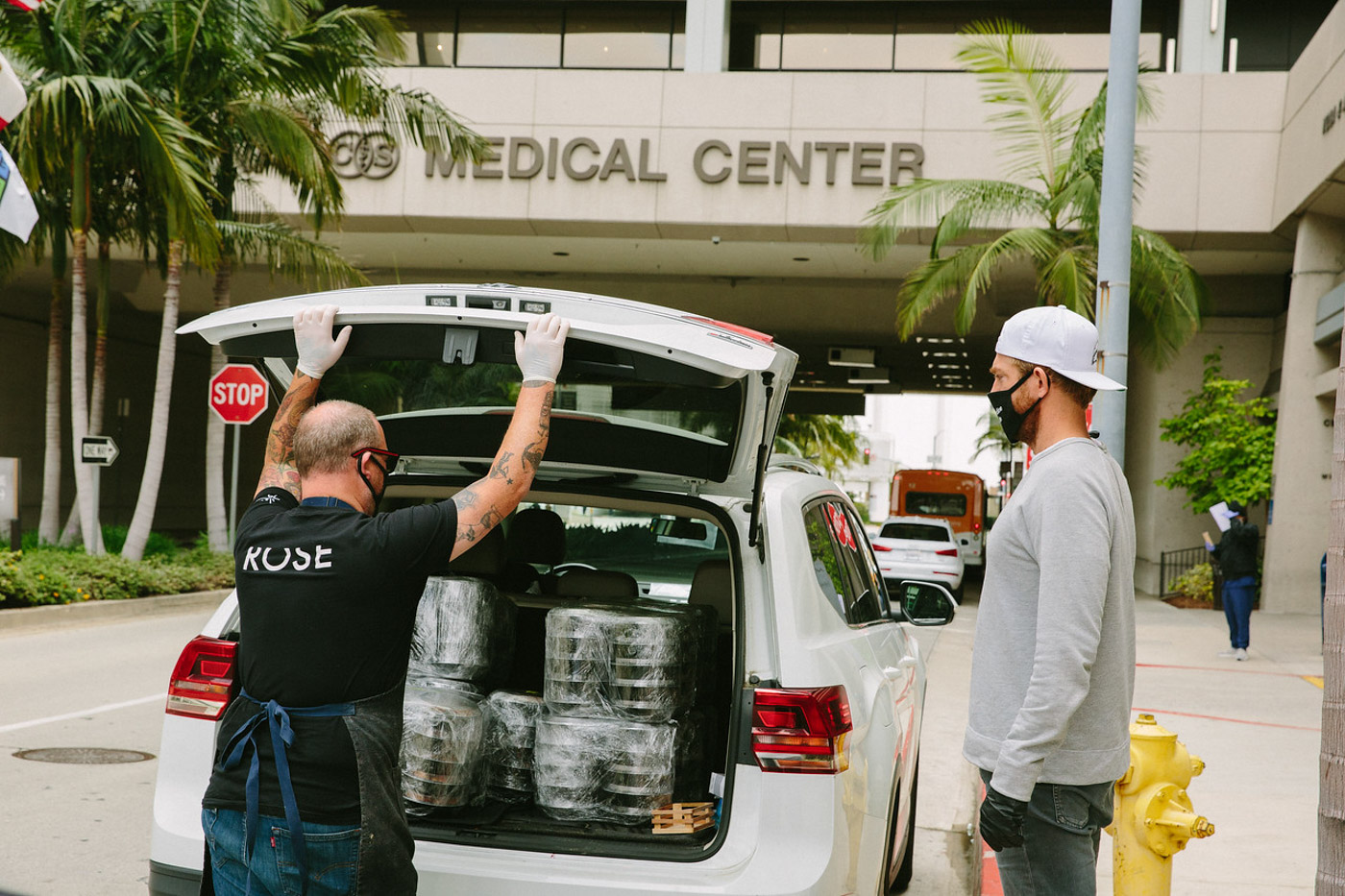
For Dalton’s patients, the pandemic has added additional stress to this challenge. “Although everyone is encouraged to stay at home right now, our patients don’t have that option. They need this treatment for their survival,” says Dalton.
Since mid-March, the cancer center has implemented a rigorous new screening process at the hospital entryway for the safety of both patients and staff. Upon entry, each patient has their temperature taken and must answer a series of questions about their personal health. Staff will also have their temperatures taken daily and are required to fill out a questionnaire via an app before their shift begins in order to receive clearance to enter the hospital. Patients and staff that are found to have a fever or other possible symptoms of Covid-19 are immediately tested for the virus and sent home to await the results.
In the past, Dalton worked four ten-hour shifts at the hospital each week. But since March, she has been working three twelve-hour shifts per week as part of the hospital’s efforts to reduce staff exposure to the virus. These longer shifts take a heavy physical and emotional toll on nurses. “You’re needed so much and so often, and you’re so focused on taking care of other people that you’re slacking on taking care of yourself,” she says.
Dalton, who is also passionate about food and sustainability, planted a vegetable garden in her backyard at the start of her local stay-at-home order, but admits it can be hard to make healthy food choices on work days. “As we see an uptick in our patient acuity and our days get busier, I’m taking lunch at three or four o’clock and I don’t always have time to prep food for the following day,” she says. Some days, she resorts to fast food to get through the day.
The difficulty Dalton and other healthcare workers experienced at the start of the stay-at-home orders in procuring wholesome, fortifying meals made them especially thankful for community support when it came to supplying food. She recalls feeling very grateful when community members began delivering pizzas to the hospital at the beginning of the crisis. One of Dalton’s patients donated fresh-pressed juices and smoothies to the cancer center, and other healthier options appeared in the following weeks, coming from the neighborhood, as well as from local businesses. In fact, by the end of March, food donations were arriving at healthcare centers all over the city.
It was also during March that fellow New York City resident Ilana Brown realized donations like these could provide support to restaurants as well, who were experiencing the crisis in their own way. Brown, who works for hospitality tech platform SevenRooms explains, “Basically overnight, the entire hospitality industry shut down. For restaurants, their revenue completely disappeared.”
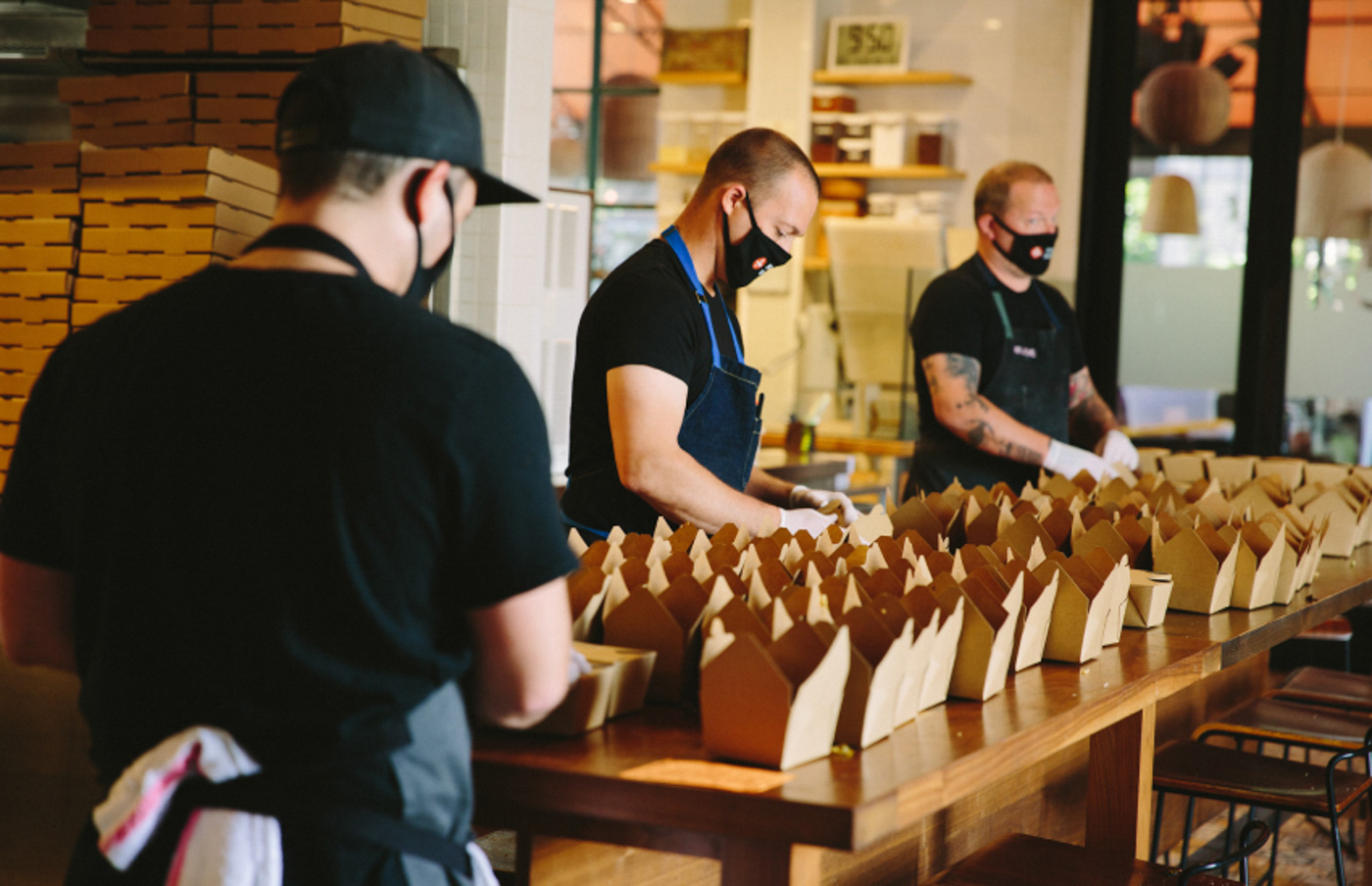
On the night that the stay-at-home order was put in place in New York, Brown immediately felt compelled to help the industry that meant so much to her. She and her boyfriend realized they could simultaneously show their support for a favorite restaurant and the healthcare industry by ordering a meal to be delivered directly to the hospital where she works. The couple invited friends to chip in, and eventually gathered enough money to feed the entire ICU.
After the success of this first initiative, hoping to collect further funds for another meal donation, Brown and her friends created a GoFundMe page. Within twenty-four hours, it had raised ten thousand dollars.
Soon, Brown became aware of similar initiatives that had recently launched in several states. “Other people were raising money, purchasing food, and sending it to ICUs,” she says. The concept to pool their resources and create something together felt like an effective next step. “We formed Frontline Foods to help restaurants stay alive during this devastating time, while showing love and appreciation and community to all of the people on the frontlines,” she says.
Frontline Foods has since expanded into sixty-five cities throughout the U.S. and, with the support of around seven hundred volunteers, has raised over ten million dollars.
Individuals can choose to donate their money to a local chapter of Frontline Foods, or they can opt to allow Frontline Foods to deploy their donation to any community that is in need of additional financial resources.
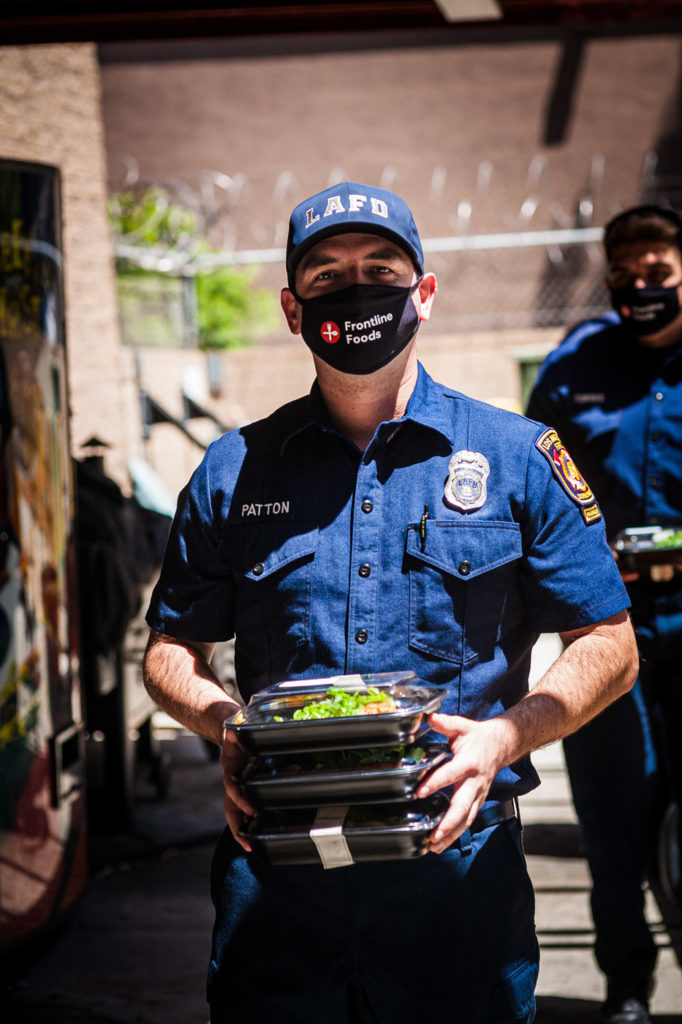
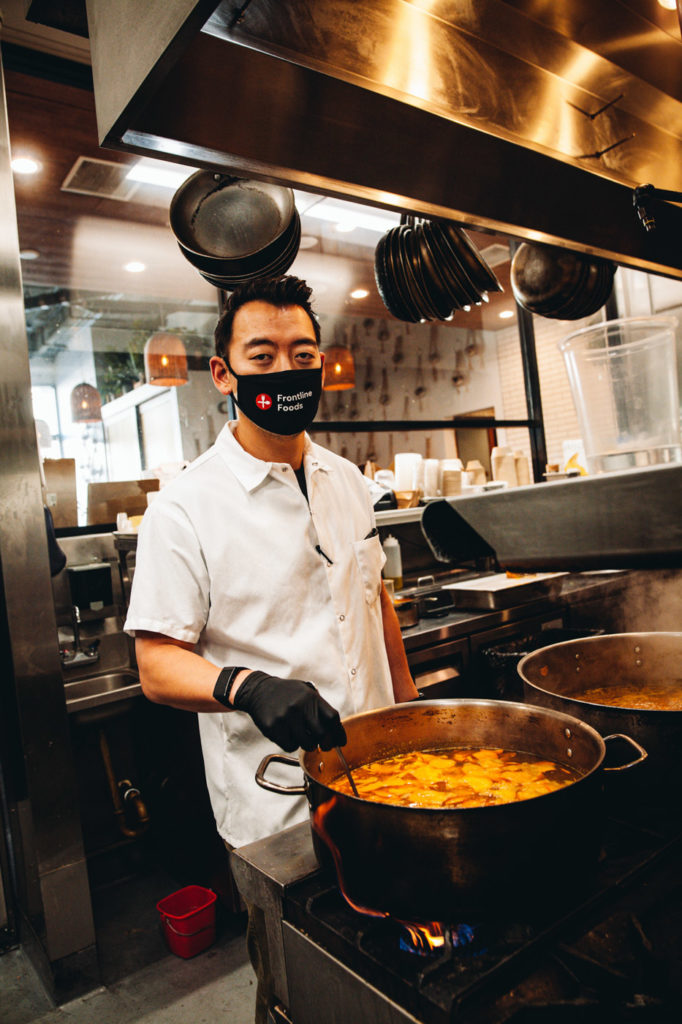
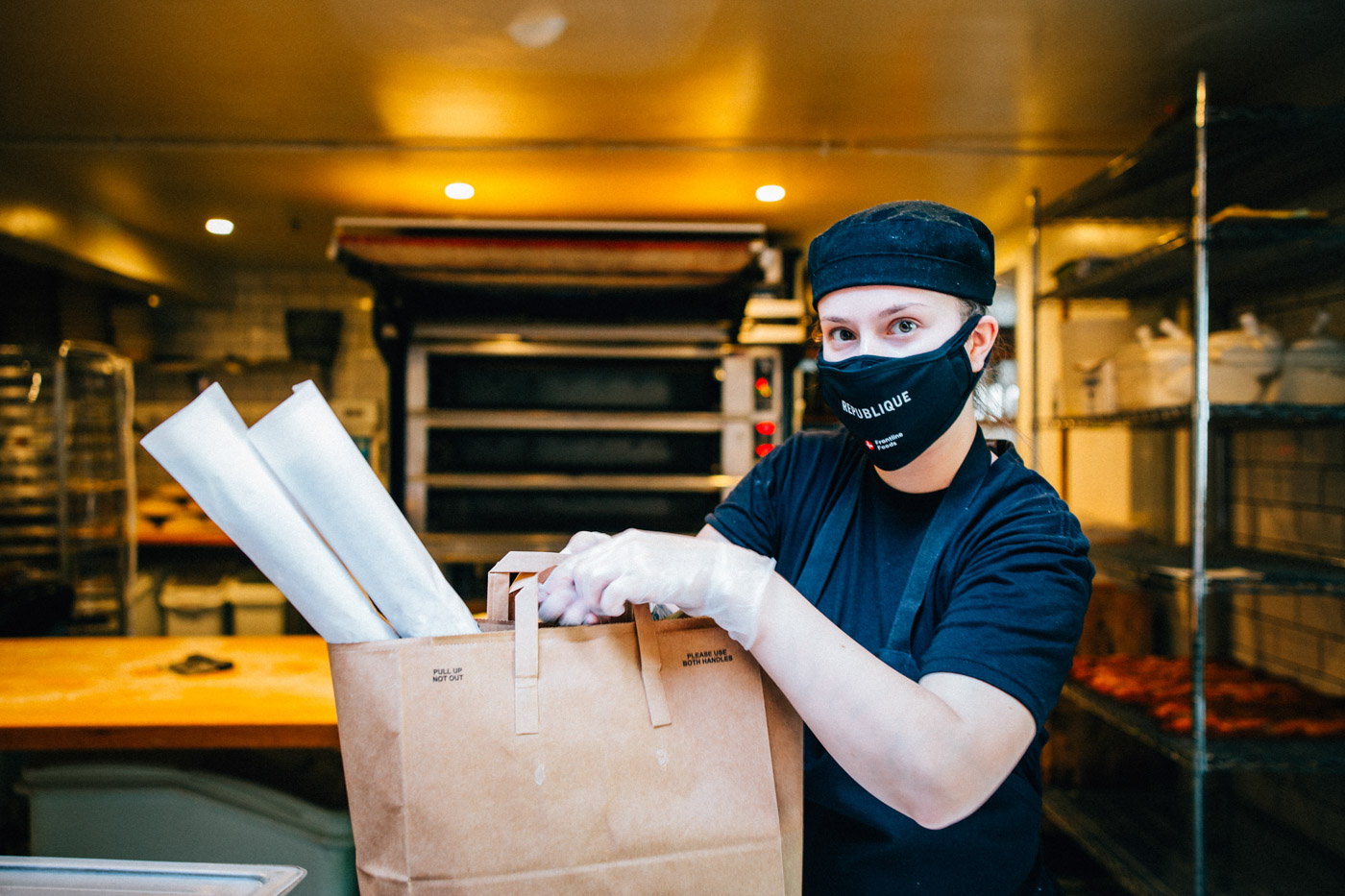
“The receipts [of these donations] have changed significantly over the last couple of weeks given all the changes in the world,” Brown says. She also anticipates that recipients will change going forward, as new and different situations present themselves. Whether that comes in the form of natural disasters, social justice movements, or a new wave of the virus, Brown says they’ll be committed to addressing those needs. “Whoever needs the help, we can deliver this to them,” she says.
Across the country, another organization—Delivering with Dignity—was founded in the early stages of the pandemic with a similar mission at its core. However, while Frontline Foods initially sought to offer food donations to medical frontline workers, Delivering with Dignity was created to provide sustenance to underserved community members, including senior citizens, individuals with medical conditions that put them especially at risk of contracting the virus, and families experiencing financial hardship.
Elizabeth Blau is the co-founder of Delivering with Dignity and co-owner of Honey Salt, one of its participating restaurants. She explains the organization relies on public and private partnership, and works with thirty-six nonprofits “who are identifying the people most in need.” These nonprofits also organize volunteers, called “food heroes,” who deliver meals directly to the homes of these individuals.
Delivering with Dignity was developed in Las Vegas, Nevada, in response to multiple stresses Blau observed in her community. The first of which was the closure of some area food banks due to concerns over the ability to safely implement social distancing measures for volunteer workers. Although temporary, the shut-downs coupled with citywide safety protocols to prevent the spread of Covid-19, left residents with limited mobility without access to food due to economic hardship or health vulnerabilities. At the same time, restaurants were forced to shut down and unable to keep staff employed. Delivering with Dignity addressed these two crises simultaneously.
The restaurants that partner with Delivering with Dignity are responsible for preparing these meals. The kitchen staff at Honey Salt prepares variations of classics from their restaurant menu for the delivered meals, taking extra care to ensure the meals are nutritious and well-balanced. In its first three months, Delivering with Dignity delivered over seventy-seven thousand meals and expanded from its base in Las Vegas in order to serve communities in Reno, Nevada, and Orange County, California.
Blau sees Delivering with Dignity as representative of the hospitality inherent to its city of origin. “People think of us as Las Vegas—as Sin City—but when the chips are down, the people of Las Vegas come together,” she says.
Blau echoes a sentiment expressed by Brown. “Our industry is incredibly resilient. It’s not an industry that you pick to get rich; you get into [it] because you love what you do,” she says. “When times are bad, we stick together and work to identify solutions to move forward.”
This dedication means strategizing to anticipate and meet future needs, and consider how to adapt a model originally developed for a very specific purpose. In Brown’s case, she sees Frontline Food’s mission as being vital for the foreseeable future. “Right now, the restaurants are still struggling, and it’s going to be years before they bounce back from this holistically,” she says. “We need to make sure not to get distracted from what the mission is, which is feeding people in a crisis and supporting restaurants.”
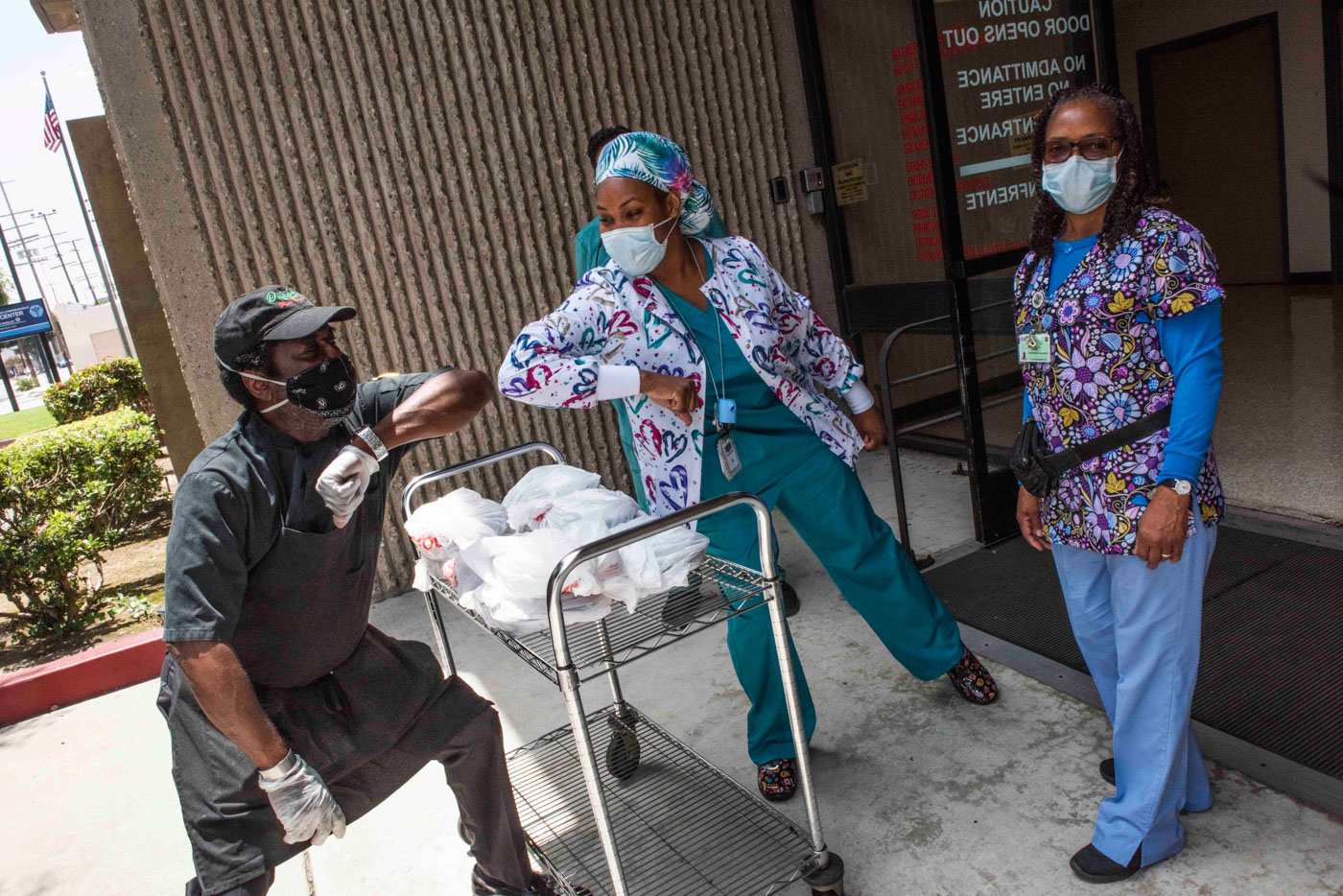
On July 9, Frontline Foods announced via Instagram that the organization would be joining the nonprofit founded by Chef José Andrés, World Central Kitchen, operating “as a nationwide extension of WCK’s core mission and programs, raising money to support impacted communities and restaurants while also taking action locally as crises arise—whether that be the ongoing pandemic, a natural disaster, or other unforeseen crisis.”
Through it all, the restaurant industry has been a uniting and fortifying force. With the end of the global health crisis not yet in sight and the future of the hospitality industry uncertain, the efforts of organizations like Delivering with Dignity and Frontline Foods, as well as the work of nurses like Dalton and other frontline healthcare workers, have demonstrated the ability of communities to survive under the most desperate circumstances and even create lasting positive change, when joined together and supporting one another.





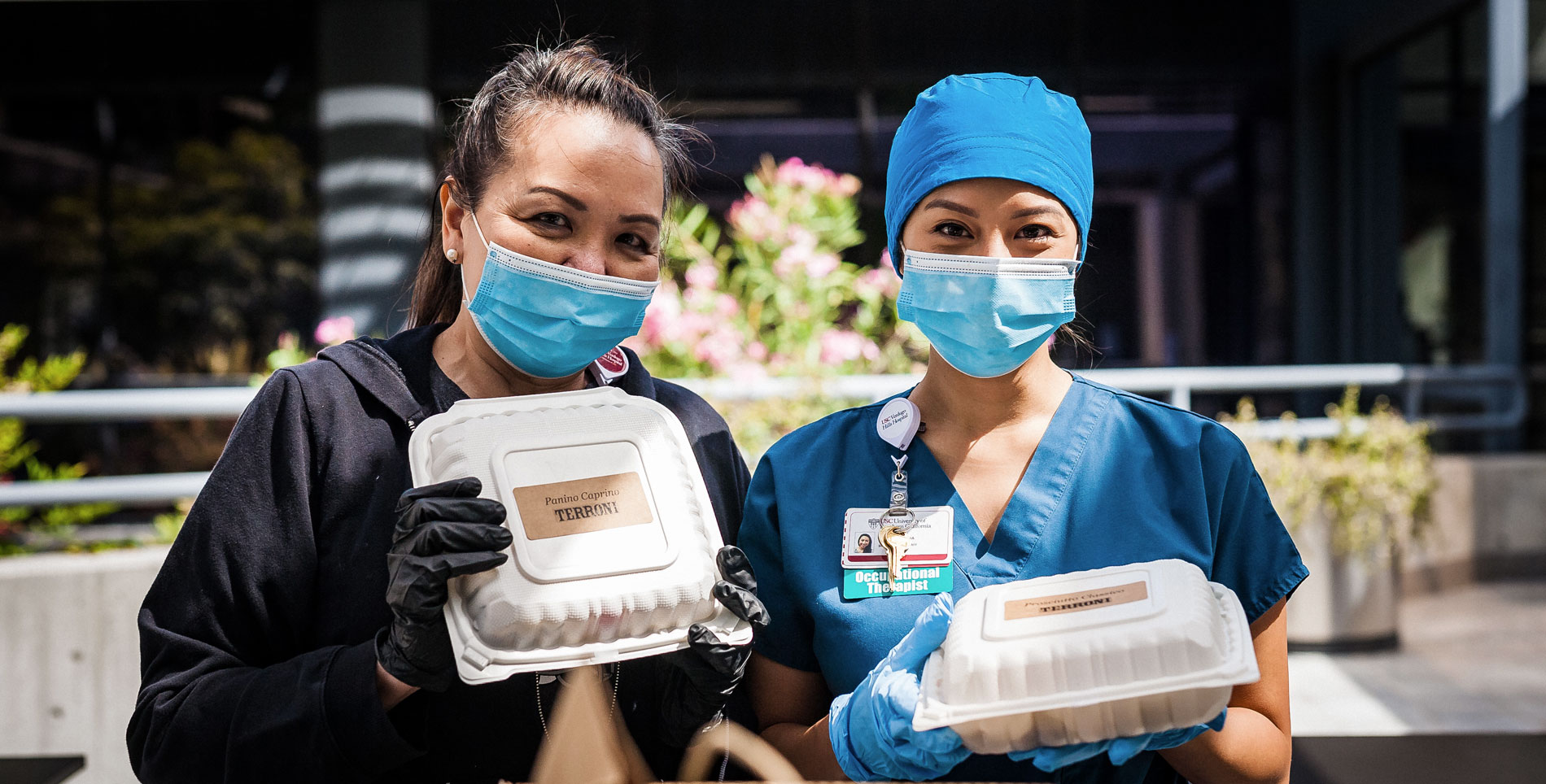

Our comments section is for members only.
Join today to gain exclusive access.